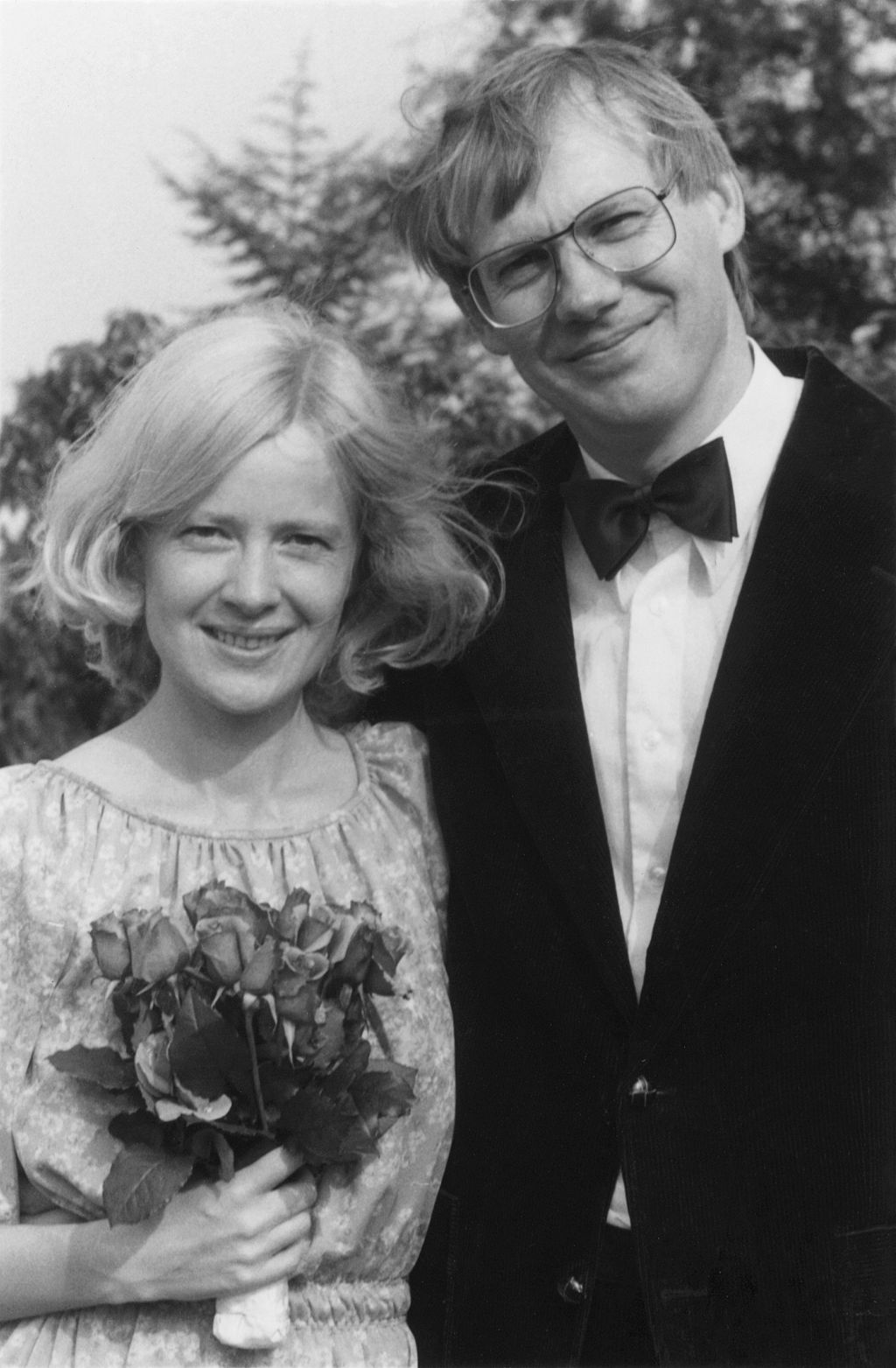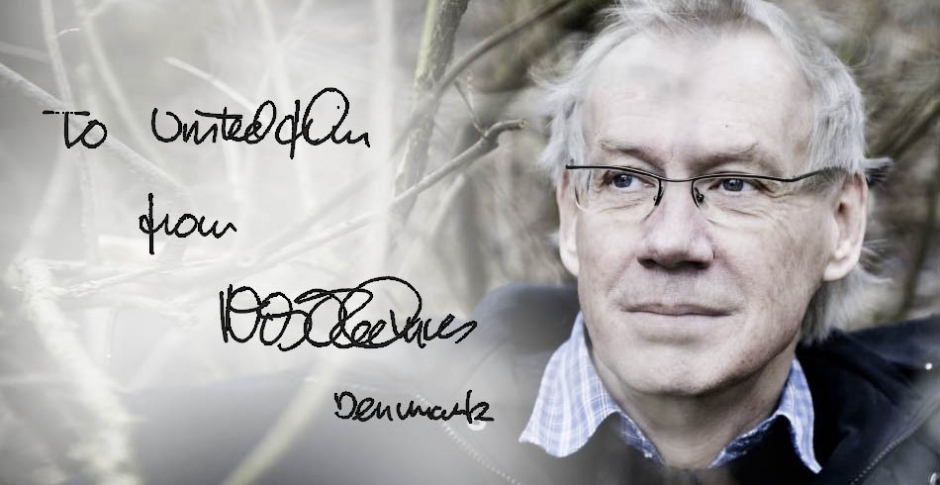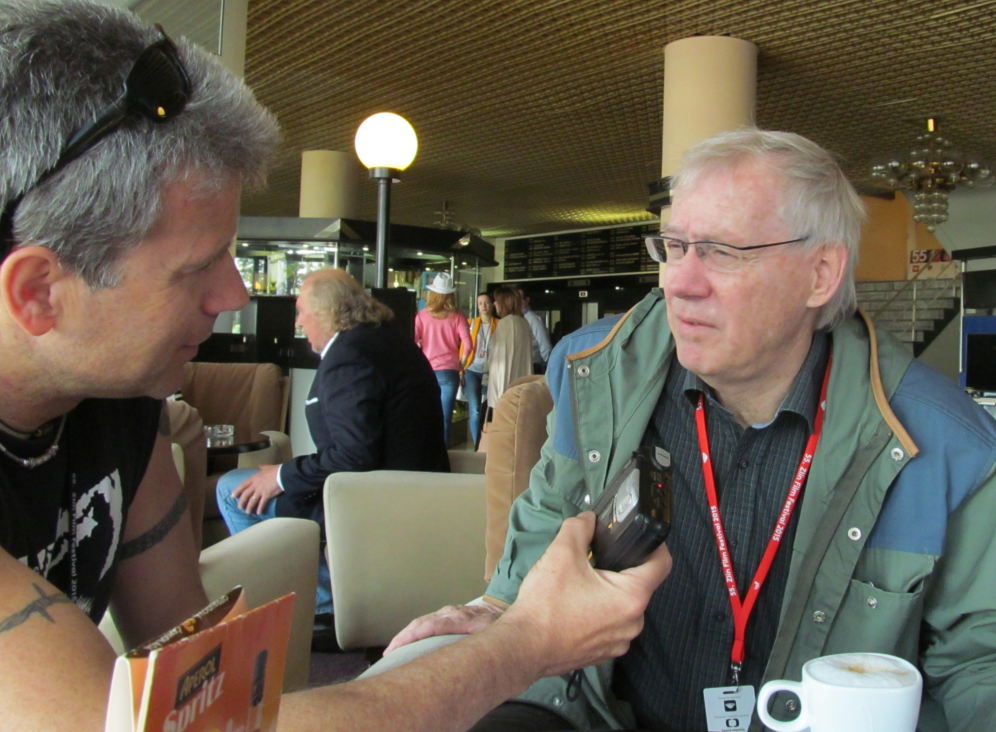Nils Malmros - I have filmed my own life
Written by Eva Csölleová, Vítek FormánekSometimes the most known personalities don´t have the most interesting story, but those less known are just the opposite. That is the case of a Danish director Nils Malmros whose name didn´t ring the bell to us before the Zlín film festival. But when we got to talk to him, we were truly amazed. A very interesting man and a very dedicated independent filmmaker who was pleased with our interest and even gave us his complete filmography in DVD gift box.
You shoot films mainly about juveniles at school and their problems. Do you just see it around you, try to help and talk about youth problems or you have some bad memories from your own childhood?
I must correct you a bit. Since the beginning of my career I knew that the best story I can tell is about my life. Up until now I have made 11 films and they were all about my life, about myself. Someone can ask what can be so interesting about it, but you know I am self made film director who wanted to shoot since his gymnasium (high school) years. My father was a neurosurgeon so he lent me his camera and I started to shoot a feature film with my classmates. I started to study medicine and also filmed so it took me 23 years to graduate. But I am a doctor today and mostly I have been working as brain surgeon in my spare time. As I said, the films are about my life and some of them are the real reconstruction to what has happened to me. My film “Tree of Knowledge” was about youth and sex in my class and it was shot during the period of two years and it shows the whole class growing up.
 You followed your father´s steps and studied surgery, which you interrupted for film studies and finished it after 23 years. What led you to finishing it when you were, after all, already established film maker?
You followed your father´s steps and studied surgery, which you interrupted for film studies and finished it after 23 years. What led you to finishing it when you were, after all, already established film maker?
Because I am stubborn. Many people told me I will never be a doctor so I said to myself “I will show you”. Every time I finished the film I thought I have said everything so studied medicine again but then I realized there is a topic I haven´t told yet so I returned to film directing again. So I told the story of my parents like Ingmar Bergman did and then I made a film about my father being a surgeon and there is a brain surgery and I am doing it myself. Basically it could be said that I had files of surgery studies on the left side and screenplay for a new film on the right side of my desk and was pondering what I should do first. You know, we have only one life, not two, and I think if I had another life I would have been good brain surgeon cos I wasn´t at that time. It was kind of schizophrenia swapping two different jobs but I liked that change. When I went to a hospital I was at the bottom of that pyramid, when I went to film I was on top of that. So I think it´s healthy to be trying to be good in different jobs at the same time.
In your first film “A Strange romance” you used your own money and friends as actors. Other movies were filmed in your old school using real pupils. Was it purely for financial reasons or did you like that way of realism, kind of Woody Allen thing?
Both. At the beginning I didn´t have any money to pay the real actors. Also at that time professional actors talked and acted like in a theatre, which wasn´t good. You know, they talked the way it should be heard on the fifth balcony which wasn´t good for my films. Then came renovation in Danish film and a new generation of actors played and spoke as we do here now.
In the early 70´s you applied 3x at the Danish Film Fund for support and was rejected all the time. Your case got to the parliament and the Fund was dissolved. Was Danish Film Fund generally against helping young directors? Is situation with new body of Danish Film Institute better these days?
Hmm, you have really done your homework, haven´t you? I am surprised. Is there anything you don´t know about me, ha ha? Okay, this Danish Film Fund started somewhere about 1965 and it was like fund for industry or at least I felt that way. They completely misunderstood it. Of course it was an art fund so I felt it was money for us. But they made awful films. My first film was a disaster, but my other film “Lars Ole, 5c” won the price of best film of the year in Denmark. Since that time I have been supported by the Film Institute. That discussion about my film changed it, so Film Fund was renamed and recreated to Film Institute. The attitude was quite different from that time.
Was it your first big victory against establishment when thanks to you Film Fund was dissolved and Film Institute established and you got 335 000 DKK in settlement?
Yes, it was. I knew that there was a fund from which you should have got money for your film and you know I had to work as a night guard in hospital to earn money for my films so why not apply for them when we had a right to do it? So I went for it and succeeded.
You said you filmed your own life. What made you think someone will be interested in seeing it?
When I started it wasn´t my intention to make films about my own life. I remember from my childhood that I very precisely saw and remembered not only how people looked like but also what has happened to people in my class. I also saw what happened to my friend and what they have been fighting for. Maybe that was my mission, show that it is not only my fight but also their fight. You know, I showed all aspect of my life that some people could identify with and say ”Hey this happened to me, too”. I showed something that they were scared of talking about and I gave them the feeling that they were not alone in it. When people saw my films they recognized their own childhood in it. That is also one of the reasons why I was well supported since that time. It was like showing life of one whole generation. When I started my film “Tree of Knowledge” it was about my school class. When I finished it, it was about myself. It got very positive reviews in Cannes.
It is said that Francois Truffaut had big influence on you. Who else influenced you?
Yeah, it was him but of course I was very influenced by Czech directors Miloš Forman and Jiří Menzel. I really love their movies “Ostře sledované vlaky” or “Lásky jedné plavovlásky”. I think the films of that time were really brilliant. I also liked “Černý Petr” and “Hoří má panenko”.
If you compare the time when you started to film and now, how big difference is in Danish film industry, you know, funding, screening, supporting and chance for young and talented film makers?
How much time do we have for our discussion??? Okay to cut it short, I love the difference in technology. I like the new technology since in old days you have to spend so much time with developing film and preparing the lamps to have a good light. I know that some people tend to waste material when they film on digital because they can wipe it out but I film carefully and save shots as if I was filming with real film reels. I only make very a short shots lasting only few seconds. You know, connecting these short shots gives real life in the film. In my first five films I was using actors as the puppets, I just pulled the strings. And it was very very good for children because I could get rid off artificial behavior. You only get what you ask for. In my starting years funding was 70% from the state. Now it is like 50% and the rest of the money you must get from television and private funds. My first protagonist was my class mate, later he married the heir of Lego company. And he is the fifth richest person in Denmark today. For my latest film I got from Film institute equivalent of 10 million Czech crowns and the whole film cost 78 million in your currency.
Is it painfull to make films about your own life?
Well, my film “Facing the truth” was about my father who, as a surgeon was accused of killing 100 people. You know, when you do the X-rays of the brain, you have to inject into the body a special liquid that gets into the brain, colour the place and then you can diagnose cancer on the pictures. My father did that to be able to operate his patients. But this liquid doesn´t get out of the body system, it goes to the liver and it is radioactive. Some 20% of people died after 20 or 30 years for liver cancer. The press made it a big thing, my father was sent to court where he was cleared since it showed he had no choice and he in fact gave 20+ years to the patients he operated, otherwise they would have died within a year or two. So he was cleared, but he died with this label and morally it was very hard for him. So I made that film to show people how it really was, what it was about and clear his name. I used that scandal as a frame to tell his story and make a film. My film “Sorrow and Joy” was about the tragedy in my life when my wife had psychosis and killed our nine month old baby. It was hard and obviously when I showed her this film she cried.
Do you consider yourself to be independent director and how much is independence and freedom important to you?
Absolutely, I am the one who decides everything on the film. We of course discuss various things while doing the movie but I have the last word. I started as writer, director, producer, editor, I try to be very authentic. In my last movie actors wore our very wedding dress for shooting the scene of our own wedding. Freedom and independence is very important to me because it is my own life.



